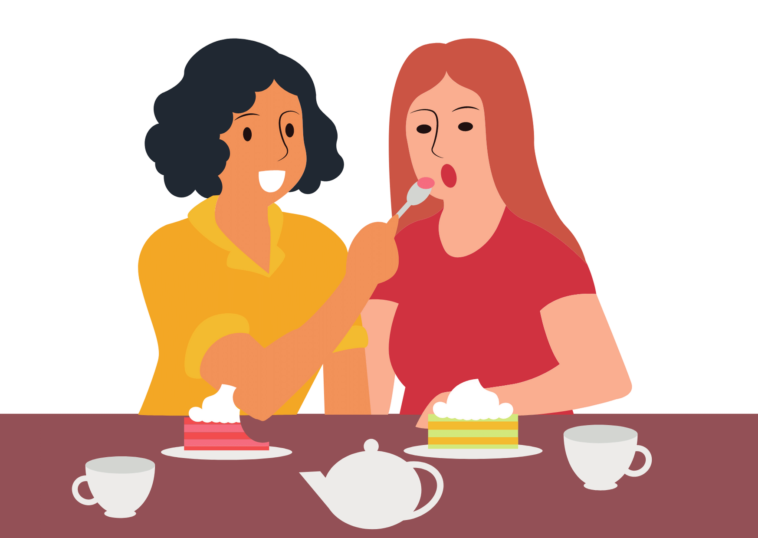The reason many people find it hard to eat less sugar is because of how it affects the mind. Sugar is not only a source of quick energy for your body, but it also activates parts of the brain responsible for pleasure.
Eating sugar activates the dopamine production circuit, so it is reasonable for a person to want sweets when they need emotional support or reward in a difficult situation.
However, excess sugar leads to negative alterations in the functioning of the body and can even lead to addiction. Therefore, proper nutrition implies a strict restriction of sugar and other simple carbohydrates.
This article describes what to do to eat less sugar using a step-by-step guide.
How to reduce your sugar intake?
The desire for sweets begins from an early age: since we were children we have been used to eating sugar, and it is logical that we love it. Sucrose in moderate amounts makes us feel energetic and happy.
However, when you reach adulthood, eating less sugar is of the utmost importance, especially when it is used as a stimulus to stifle negative feelings or even depression.
The problem with sugar is not only its caloric content, in fact a tablespoon of sugar in tea contains only 20-25 kcal, which is not that much. But because it causes a rapid spike in blood sugar levels, which ultimately leads to weight gain.
So reducing sugar is not only crucial to achieve a healthy weight, but also to normalize hormone levels, which is of particular importance in preventing diabetes.

How to eat less sugar step by step:
1. Make a long-term plan
Giving up sweets is a gradual process. It is much easier to eat less sugar by changing habits little by little. In fact, cutting out sugar quickly can make you feel anxious or depressed.
Research suggests that it will take about 3-4 weeks to combat the acute phase of sugar dependence. As with every tough process, gradual change is key.
2. Limit your candy, and sweets
Although the sweets really lift the mood, the effect lasts only a few minutes; generating the need to address candy problems is definitely a good start. Practice physically activity (even cleaning your house) to fight sugar cravings, and learn to have candy only after a good workout session.
3. Keep sugary products out of sight
In most cases, we don’t feel like something sweet when we are really hungry; most of the time, we just want to eat what we see. If you have a strong urge to eat sweet foods, replace them with fruits, nuts, and other healthy snacks.
4. Avoid soft drinks
Eliminating sugary juices and sodas is a key point to eating less sugar. Even juices classified as natural contain many refined carbohydrates in their composition. Replace these drinks with flavored waters or natural fruits.
5. Eat more fiber
Fiber foods not only help regulate blood sugar levels, but they also provide long-term satiety. Instead of making desserts with sugar and white flour, opt for whole grains and eat more vegetables.
6. Learn to identify the “hidden sugar”
Pay attention to the composition of the products you buy: manufacturers tend to mislead consumers by marking products “sugar free” but using very similar substances. Fructose, glucose syrup, glucose, maltodextrin, dextrose, sucrose, agave syrup, honey are all compounds that are similar, and as detrimental to health as sugar.
7. Cook your own desserts
Gradually getting rid of the sweet processed foods is essential to eating less sugar. Replace them with healthy desserts made with healthy sugar substitutes like sugar alcohols. Remember also that natural fruit is a “safe” substitute as it contains a large amount of fiber.

How to overcome sweet cravings?
At that time when sweet cravings seem inevitable, take a hot shower or go for a walk. Also, a healthy snack like walnuts will help overcome hunger pangs and desperate cravings for starchy foods.
Physical activity, such as a 20-minute jog at a gentle pace, is ideal for eating less sugar. Cardio is not only the best way to get insulin back to normal, but also a way to combat excess weight.
What happens when you eat less sugar?
Bad mood, headaches, and fatigue are typical consequences of sudden sugar reduction. However, this is normal, and you just have to get used to lowering blood sugar levels.
Contrary to popular myth, the human brain does not need table sugar to function properly. The body is able to synthesize glucose from complex or good carbohydrates. In other words, sweets can be completely abandoned without harming our health.
SUMMARY
Giving up sugar and sweets is a gradual process of fighting addiction, so you should change your attitude, and mindset above all. Ultimately, it is not the sugar itself that is harmful, but its regular use and the habit of eating sweets foods regularly leading to weight gain, and other health complications.



